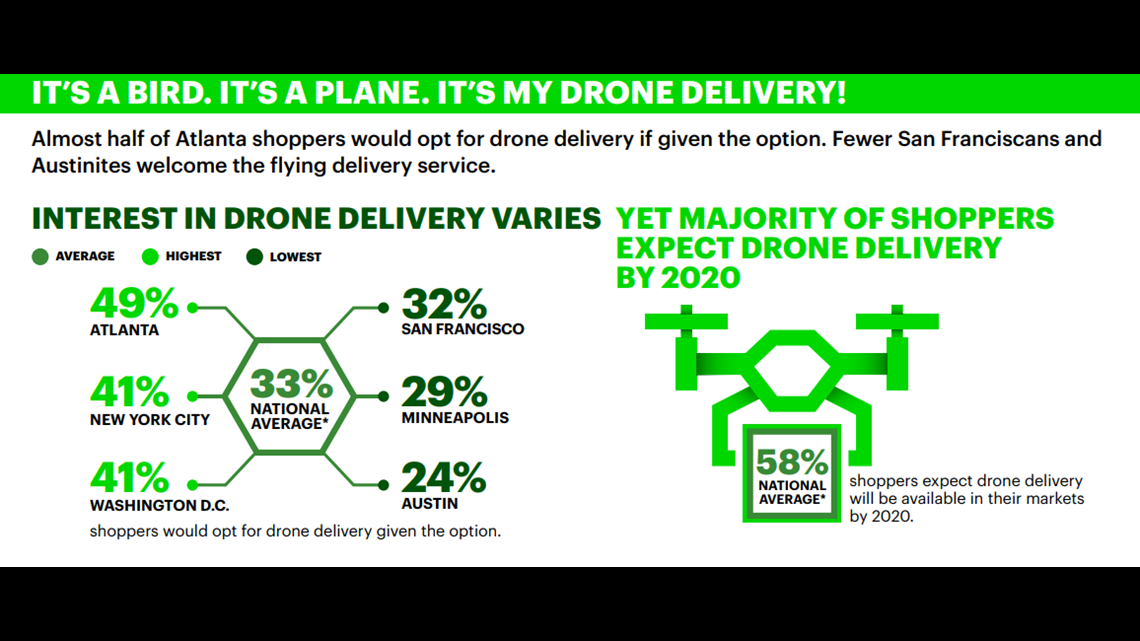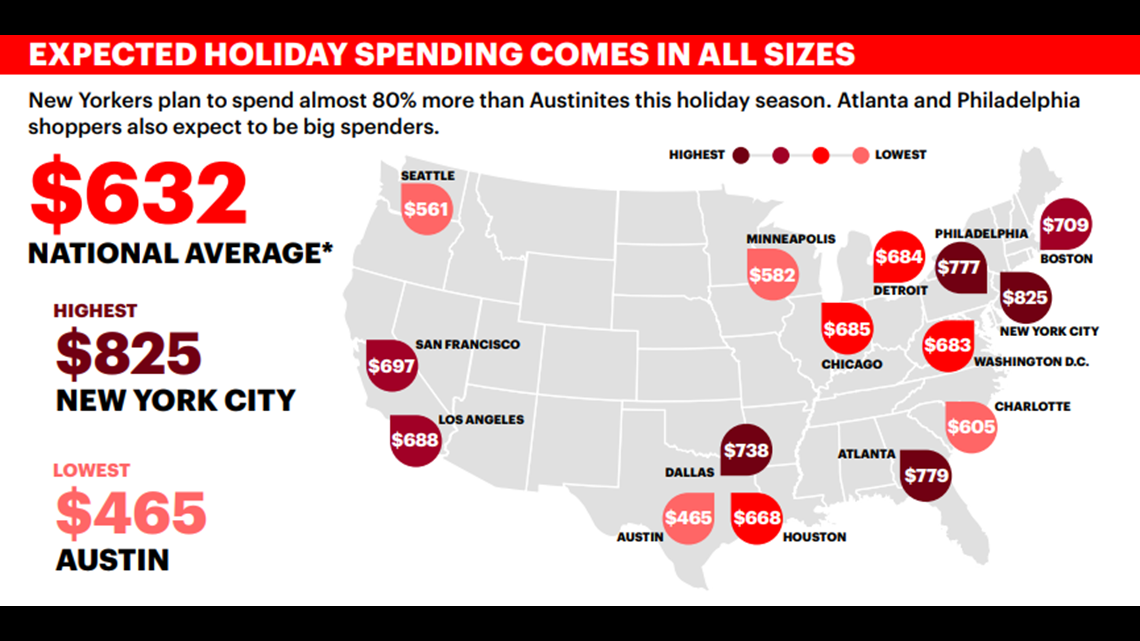A new survey released by Accenture revealed that more U.S. consumers were likely to do online shopping this holiday season as opposed to physically going out to shop.
The 11th Annual Accenture Holiday Shopping Survey found that bargain hunters are shopping for their holiday hauls all year long.
U.S. consumers are less inclined to shop on traditional peak holiday shopping days this year and more likely to search and buy the best bargains online rather than in stores.
The online survey found that slightly more than half of the respondents said they are less likely to shop on Black Friday this year, with nearly the same percentage less likely to shop on Thanksgiving and 42 percent less likely to shop on Cyber Monday.
Approximately two-thirds of those who said they don’t plan on shopping on Black Friday said it was because of crowds of people flooding stores. Another reason was that these shoppers are able to find bargains year-round, so no need to shop on a few select sale days.
The same two-thirds of those surveyed said they shop for holiday gifts year-round especially since so many websites provide so many sales such as Amazon Prime Day. More than 44 percent said they were able to find equally, if not better, deals and discounts on any other day of the year.
Consumers expressed that they’d rather do more than half of their holiday shopping from the comforts of their own home; makes sense. Not only that, but those who were surveyed said that online shopping is just plain convenient.
Another interesting thing to note, 33 percent of people in the U.S. would opt for drone delivery if the option were given. Out of that percentage, Atlanta is the one of the cities with the highest interest in drone delivery.


“Given the rise of constant discounts and promotions on sites such as Amazon, consumers are doing more of their holiday shopping year-round, and this is proving to be the biggest competitor to the traditional peak holiday shopping days,” said Jill Standish, senior managing director and head of Accenture’s Retail practice. “Smart retailers are taking a longer-term view of the season. Rather than just striving to win new sales through ever-lower discounts, they instead see the holidays as an opportunity to define their purpose, engage in a way that is memorable and be clear about the role they will play in shoppers’ lives both practically and emotionally. Experiences that are distinct, memorable and worth sharing with others can be the foundation for a more-profitable, enduring and year-round relationship.”
Some other key findings in this year’s survey showed:
- Lower percentage of consumers say they’ll spend more money on holiday gifts this year. While several indicators predict holiday spending to increase, the number of respondents who said they plan to spend more this year dropped by 11 percentage points, from 44 percent last year to 33 percent this year. This could be due, in part, to the rising uncertainty of consumers’ financial circumstances: 29 percent of consumers in this year’s survey said they are optimistic about their financial situation coming into the holiday period, compared with 34 percent last year.
- Gas prices are more likely than any other factor to affect consumers’ holiday spending. Gasoline prices is the main factor negatively affecting consumers’ holiday shopping spend this year, cited by more than one-third (37 percent) of respondents — double the number who cited that factor last year (19 percent). Rising food prices was cited next-most-often; 31 percent of respondents this year which is up slightly from 28 percent last year.
- Shoppers will do their homework. Consistent with last year’s survey, U.S. shoppers will be doing lots of research before making holiday purchases this year. Three-quarters (76 percent) of respondents said they will likely ‘webroom’ — i.e., shop for a product online before purchasing it in a retail store — and approximately the same number (79 percent) said they plan to ‘showroom’ — i.e., visit a store to review a product before purchasing it online. In addition, more than four in five shoppers (84 percent) said they check Amazon.com before looking or buying elsewhere.
- Retailers could benefit by providing shopping ideas. Nearly two-thirds (64 percent) of respondents said their shopping experience would be made easier if they could get ideas for gifts for holidays and special occasions, as well as for people for whom they don’t regularly shop. More than half (54 percent) also cited online wish lists as another factor that would improve their shopping experience.
- ‘Experience’ gift purchases will likely increase. One-third (34 percent) of respondents said their holiday gift-buying this year will include ‘experience’ gifts — such as for restaurants, cooking classes, travel, concert and theater tickets. In addition, 36 percent of respondents said they will spend more money on ‘experience’ gifts this year than last year, with another six in 10 (58 percent) saying they plan to spend the same amount.


“Winning over the consumer will require providing active, rather than passive, shopping inspiration,” said Standish. “For instance, by proactively offering gift recommendations for that special person, retailers can influence purchasing before consumers check out Amazon or other e-tailers. And while technology has altered the retail experience for consumers and retailers alike, retailers must not lose the human touch. Those that succeed will balance human understanding and sensibility alongside digital prowess.”
“In addition, with the rising popularity of ‘experience’ gifts, competition for wallet-share is shifting from rivals in the retail industry to new competitors in other industries, such as travel. This makes it even more imperative for retailers who want to grow — or even just maintain — their share of wallet to enhance and improve their customers’ shopping experience, whether through improved technology or the addition of new services.”
- Consumers remain price-sensitive. Respondents were nearly twice as likely to say they plan to buy gift items at individual stores to get the best prices on each rather than buying them all in one place (48 percent vs. 25 percent).
- In terms of delivery, consumers prefer free over fast. Respondents were more than 10 times as likely to say they’re willing to wait longer for their items to be delivered for free than to pay an additional cost for immediate delivery (53 percent vs. 5 percent).
- Gift cards remain popular. More than two-thirds (71 percent) of respondents said they plan to purchase gift cards this holiday season, spending an average of $42 on each gift card.



